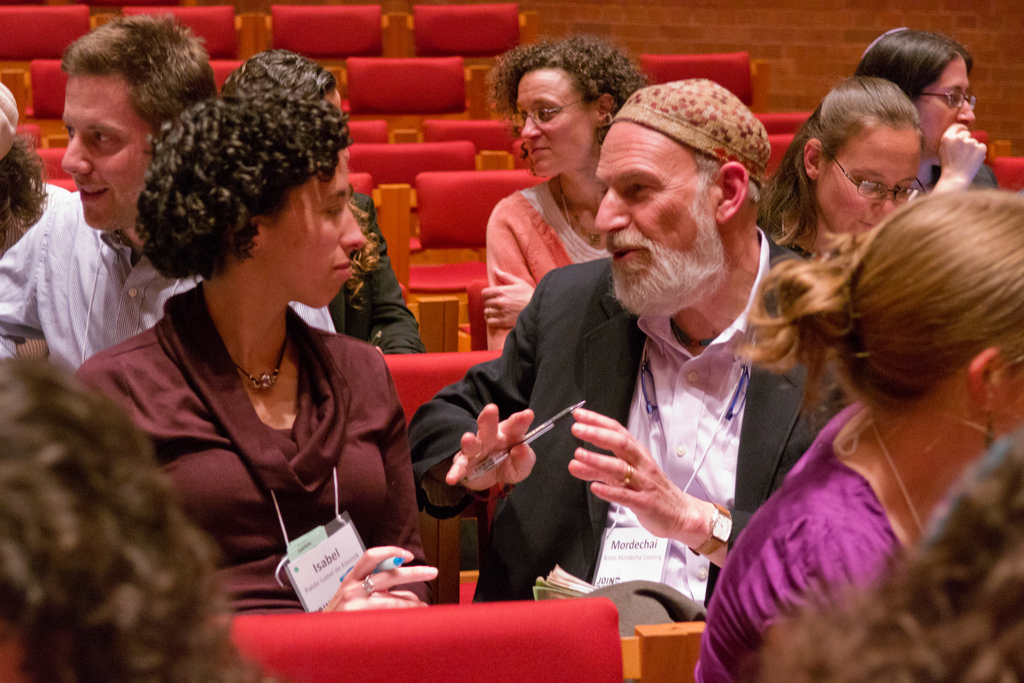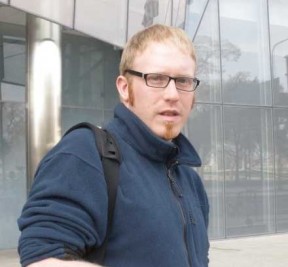This post originally appeared on Repair Labs.

Building Relationships at the National Summit
Relationship-building is one of the most important items in a community organizer’s toolbox. Power, for an organizer, is built not though domination, but through fostering relational trust amongst an ever-growing pool of committed and passionate individuals. Relationships are the glue that hold communities together and more importantly make them capable of creating long-term plans and taking decisive actions. This fact is rarely lost on the staff at JOIN for Justice and was particularly present in our minds when we held our first ever national summit that brought together over 250 lay community leaders, clergy, Jewish professionals, and professional organizers.
The JOIN Summit was composed of classes and workshops led by experts and large plenary sessions filled with inspiring speeches. But just as important, it contained opportunities for attendees to talk face to face, to share their stories with one another, and to begin constructing a group narrative for themselves about who they are as part of a larger whole, and indeed as part of a movement. By engaging in conversation and deep listening, these individuals have laid down the basis for shared action on a grand scale.
To understand why this kind of relationship-building was both a conscious strategic priority and something deeply Jewish in its essence, one can look to the words of the Chair of our Board of Directors, Rabbi Jonah Pesner. Rabbi Pesner, also the founder of the URJ’s Just Congregations, has been at the forefront of synagogue organizing and Jewish social justice work for the last 10 years and was honored at our summit with the Tekiah Social Justice Award. He continually reminds us that relationships, and more specifically covenantal relationships, which are oriented toward shared action, lie at the heart of everything that JOIN for Justice does. To gain a better understanding of what this means Jewishly, the following passage from “Building Power for Redemption” by Rabbi Pesner with Lilah Foldes might be useful.
For Jews the encounter at Sinai sets the paradigm for the sacred nature of relationships….With na’aseh v’nishmah, doing and hearing, Israel agrees to both listen and act; in short, Israel commits to enter into a relationship….God’s revelation is a template for the Jewish obligation to enter into covenantal relationships, by listening and acting, not only with God but with one another. Sinai models for us the nature of a covenantal community.
This reading challenges rabbis and other leaders of Jewish congregations and institutions to ask if our communities reflect the promise of this sacred cycle of covenantal relationships that compels action. Do the members of our communities feel truly connected to one another, obligated to act collectively? As community organizing teaches us, in order to act together human beings need to know one another. Just because people occupy the same religious institutions does not mean they are a community.
With that in mind we would like to pass along a new excerpt from our Jewish Organizing Fellowship Toolkit. These excerpts illustrate two powerful components of the fellowship that rely heavily on relationships. The first outlines how we have used regular fellowship retreats to make space for deep listening and relationship-building, which have allowed our fellows each year to enter into covenantal relationships with one another. Like our summit, these retreats also include space for study and skill- building, but their real power comes from fellows finding shared values and common priorities. This allows them to work together within the fellowship and to take action together out in the world as organizers. This has borne fruit as fellows and alumni have worked together on things ranging from organizing our national summit to forging a lasting coalition to fight for youth jobs in Massachusetts.
The second excerpt outlines how we have used coaches as a way for fellows to forge trusting relationships with experienced professionals, for the purpose of engendering reflection and learning from experience. We hope that you find this useful in building relationships for power.
 Aaron Gunning hails from Chicago and is a proud graduate of The George Washington University. Prior to moving to Boston he spent three years as the Director of Youth Programs at Beth Emet The Free Synagogue in Evanston, IL where he engaged young people in everything from whirlyball to exploring structural causes of poverty. He is currently a student a Boston University studying Community Education Leadership and Program Evaluation and Planning. In addition to working at JOIN for Justice he is also a resident organizer at The Moishe Kavod House in Brookline and a research assistant at The Research Institute for Learning and Development in Lexington.
Aaron Gunning hails from Chicago and is a proud graduate of The George Washington University. Prior to moving to Boston he spent three years as the Director of Youth Programs at Beth Emet The Free Synagogue in Evanston, IL where he engaged young people in everything from whirlyball to exploring structural causes of poverty. He is currently a student a Boston University studying Community Education Leadership and Program Evaluation and Planning. In addition to working at JOIN for Justice he is also a resident organizer at The Moishe Kavod House in Brookline and a research assistant at The Research Institute for Learning and Development in Lexington.






